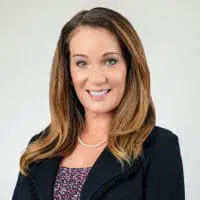Publication
Delaware Confirms Officers, Not Just Directors, Owe Corporate Oversight Duties
By Jennifer Hadley Catero and Tyson J. Prisbrey
The Delaware Court of Chancery recently issued a decision clarifying that officers, not just directors, owe oversights duties to the corporation. Vice Chancellor Laster found that Caremark-type obligations extended to a former officer of McDonald’s who was accused of ignoring systemic sexual harassment in the company and, also, of committing sexual harassment himself.
Prior to his termination, David Fairhurst was an executive vice president and global chief people officer of McDonald’s with supervisory authority for the company’s human resource department. During his tenure as global chief people officer, Fairhurst and the CEO promoted a party atmosphere at McDonald’s headquarters where alcohol was consumed in excess and sexual harassment was prevalent. The environment in the company’s HR department made employees feel they had little recourse for reporting bad behavior. Moreover, Fairhurst himself was disciplined by the company for sexual harassment, but due to his relationship with the CEO, Fairhurst kept his job. After the incident, the company, with Fairhurst’s help, instituted mandatory education, training, and reporting on sexual harassment and diversity training. A year later, the CEO was terminated due to misconduct, and Fairhurst was terminated for cause shortly thereafter, ostensibly for yet another incident of sexual harassment. After these terminations, two class action lawsuits commenced and a SEC investigation ensued.
Shareholders of McDonald’s, in a derivative suit, sued Fairhurst for breaching his fiduciary duties, including the duty of oversight. Shareholder’s alleged that during Fairhurst’s time as head of human resources, he breached fiduciary duties by allowing the development of a corporate culture condoning sexual harassment and misconduct. Shareholder’s alleged Fairhurst had a duty of oversight to make a good faith effort to establish a system to allow the company to manage the human resources department and prevent the type of culture at issue. They also alleged he breached this duty by consciously ignoring and failing to report upward red flags regarding sexual harassment and misconduct.
In a motion to dismiss, Fairhurst argued he could not have breached a fiduciary duty of oversight because, under Delaware law, the duty of oversight applied only to directors, not officers. Vice Chancellor Laster rejected this argument and confirmed that under Delaware law, officers also owe a duty of oversight.
The duty of oversight applies to officers for four reasons. First, officers are charged with and responsible for running the business of the corporation. Being in the day-to-day operation of the company, officers have a greater capacity to make oversight decisions, such as implementing information systems and recognizing red flags, than directors, who meet but a handful of times a year. Second, it is well-settled Delaware law that officers owe the same duties to the corporation as directors. Third, as agents of the directors, officers owe additional and more concrete duties to their principal. The directors cannot be expected to uphold their oversight duties without reliable information flowing to the directors from the officers. Fourth, to allow officers to escape oversight liability would create a gap in the ability of directors to hold officers accountable.
As for the scope of an officer’s oversight duty, Vice Chancellor Laster acknowledged that this duty can and will vary between officers and directors. While directors have plenary authority over the entire organization, not all executives do. With the exception of the CEO and a few others, officers generally have a more constrained area of authority. Therefore, not every officer has oversight duties over the whole corporation. However, if the red flag is sufficiently prominent, no officer will be able to turn a blind eye and assert that the issue is “not in my area.” As applied to Fairhurst, he was head of HR. Clearly, failing to maintain systems of information to report, and ignoring red flags of, systemic sexual harassment in the company, and within his own department, was in his area of control.
The obvious take away is that officers of Delaware corporations owe a fiduciary duty of oversight to the corporation. This includes both information system and reporting-type claims and red flag claims under Caremark and its progeny. While a CEO has a duty of oversight over the whole company, most executives owe a duty of oversight only within their respective lanes: CFO for financial decisions, general counsel for compliance and legal, etc. However, executives should be advised to not rest on their duties under the “not in my area” theory because if the “red flag” is sufficiently glaring, all officers could face a claim that they had a duty to report and/or act upon it.
About Snell & Wilmer
Founded in 1938, Snell & Wilmer is a full-service business law firm with more than 500 attorneys practicing in 17 locations throughout the United States and in Mexico, including Los Angeles, Orange County, Palo Alto and San Diego, California; Phoenix and Tucson, Arizona; Denver, Colorado; Washington, D.C.; Boise, Idaho; Las Vegas and Reno, Nevada; Albuquerque, New Mexico; Portland, Oregon; Dallas, Texas; Salt Lake City, Utah; Seattle, Washington; and Los Cabos, Mexico. The firm represents clients ranging from large, publicly traded corporations to small businesses, individuals and entrepreneurs. For more information, visit swlaw.com.


